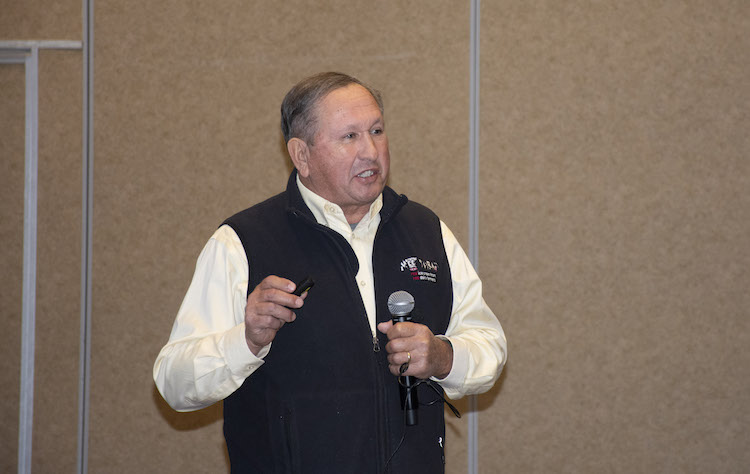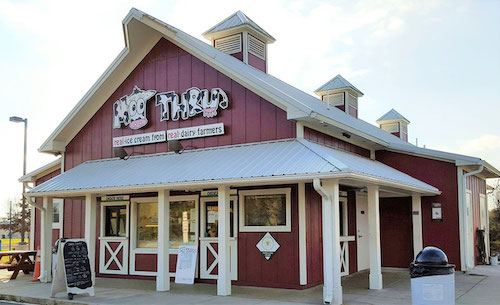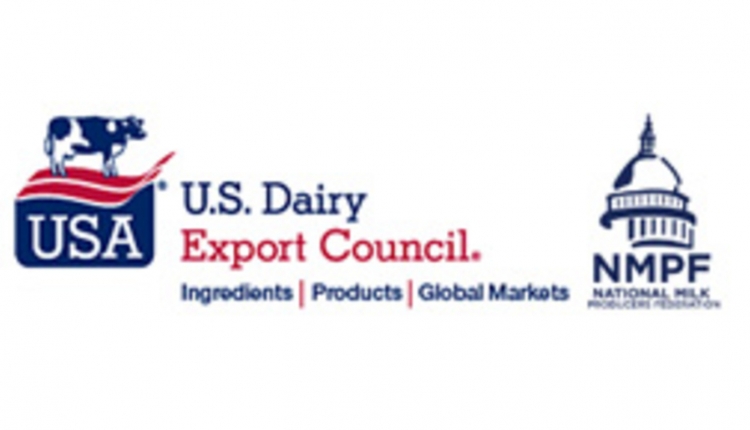
One sweltering summer afternoon, dairyman Ken Smith was stopped at an intersection with a truckload of haylage. He noticed all these other people driving by, with smiles on their faces and money in their pockets, heading off for some summer fun. It was at that moment he got an idea that would diversify his dairy business.
During a panel discussion at the Professional Dairy Producers of Wisconsin (PDPW) Business Conference, Smith explained that his parents moved their 70-cow herd from Maryland to Virginia while he was attending college. Smith didn’t plan to become a farmer, but a change of heart led him back to the dairy, and that is where he has been ever since. Over the past few decades, his family grew the herd to its current size of 930 Holsteins.
That intersection near Remington, Va., which sits about 2 miles from their dairy, became the site where Smith built an ice cream store named Moo Thru. The logo, sketched out on a napkin by Smith’s daughter when she was 12 years old, has become widely recognized in their area and beyond.
People were skeptical that this location, sitting outside of town, would draw people in, but the numbers say otherwise. Following slow and steady growth since the shop first opened in 2010, now more than 300,000 visit the ice cream store annually.
To help grow business in the beginning, Smith looked for ways to help draw people in who were driving by at 60 miles per hour. The simple addition of a cow statue out front really changed their business, Smith said. They also added a drive-through during the COVID-19 pandemic, and that helped grow their business substantially, he noted.

The popularity of Moo Thru also depends on a quality product, which Smith is very passionate about. “Everywhere we go, we eat ice cream. We are testing our product against others,” he explained. “If they have something better than us, I want to know what they are doing, because I am going to have the best. The only way I can keep selling my product is to not have a comparable.”
Smith explained that they went into ice cream making instead of producing cheese or another product because they wanted people to come to them; they didn’t want to be in the distribution game. They also chose to build the ice cream store off the dairy rather than on it. Smith said their location on a busy highway gives them more exposure and minimizes the amount of advertising they do.
Today, his daughter is the ice cream maker while his son manages the dairy herd. A crew of high school and college students work at the ice cream store, which is busiest from Thursday afternoon through the weekend. That was once piece of experience Smith shared with the audience. “This is work, just a different type of work. Your weekends are gone because you are catering to people who have weekends,” he stated. “If we were not open on Sunday, I’d give up 50% of our sales. That’s when people are traveling and enjoying life, and I want to be a part of that.”
He also said that people looking to build a business like this need to be willing to improvise and make adjustments along to the way. “You have to be afraid and carefree at the same time,” he advised.
Smith noted that ice cream is a luxury item people don’t need every day, but the chance to stop at an ice cream store for a sweet treat adds pleasure to life, and Smith loves to be a part of that. “It’s a good feeling . . . to see people are happy when they are eating ice cream,” he said. With a few other locations now in operation, and patrons who patiently line up dozens deep waiting for their sweet treat, Smith is clearly excited for both the future of their dairy and their ice cream.








